The big AHA! from the research was that there is no such a concept of ex-patient in psychiatric care. Due to various difficulties, patients can always come back to where they were with their mental illnesses, and therefore rehabilitation activities offered by various entities including the so-called 3rd sector are as important as the care offered by the health centre.
The team worked together with Aurora Psychiatric Hospital and Malmi outpatient clinic both of which belongs to the city of Helsinki Health Centre, as well as with many NGOs offering services and activities for psychiatric patients and rehabilitants. The result was two radically different solutions–ADLs Game, Fearless Friday–in terms of budget, scale, and realisation time.
ADLS Game
Activities of Daily Living (ADLs) is a widely-used medical term in both somatic and psychiatric care. Some mental patients, especially schizophrenics, may have difficulties in managing Basic ADLs such us brushing their teeth and taking a shower and a patient might not even remember what a toothbrush is, or the patient might be able to say what it is not knowing what to do with it. There are also patients who are in better condition and manage to do those basic things but they might not be able to go outside to buy groceries alone.
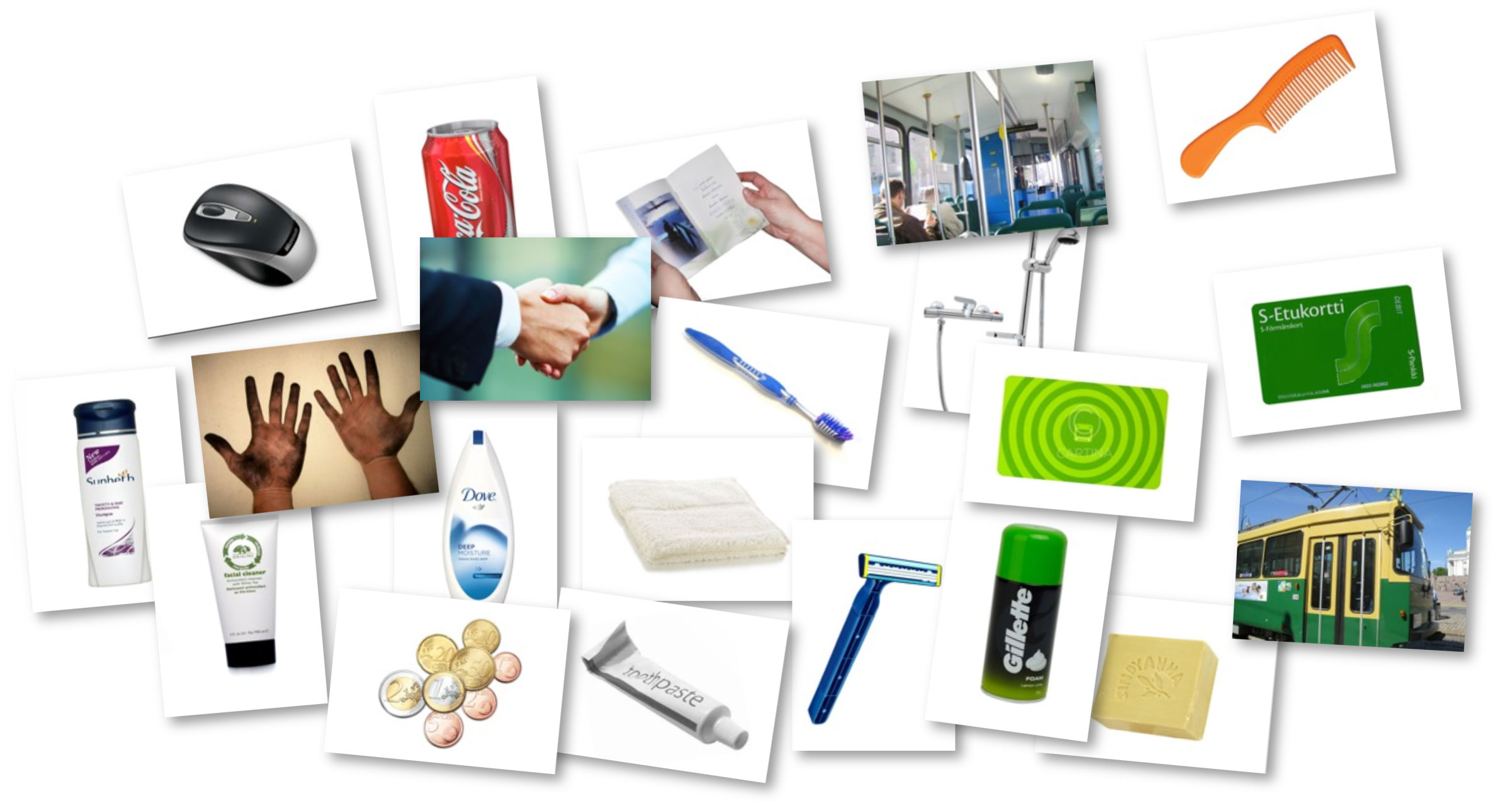
ADLs game is designed to help the caregiver evaluate patients’ ability to pull of ADLs and to help patients practice or learn the aforementioned skills. The game consists of many cards related to different activities, and the idea is that a caregiver asks a patient to pick up cards that are relevant to a certain activity, to put them in right order, and to explain each step and how he/she would do it. Patients in better conditions can practice Institutional ADLs: how to use the public transportation step by step starting from determining the items one should have with them before leaving home, how to interact with the bus driver and how to buy a ticket. The game also can help patients be more confident outside of home.
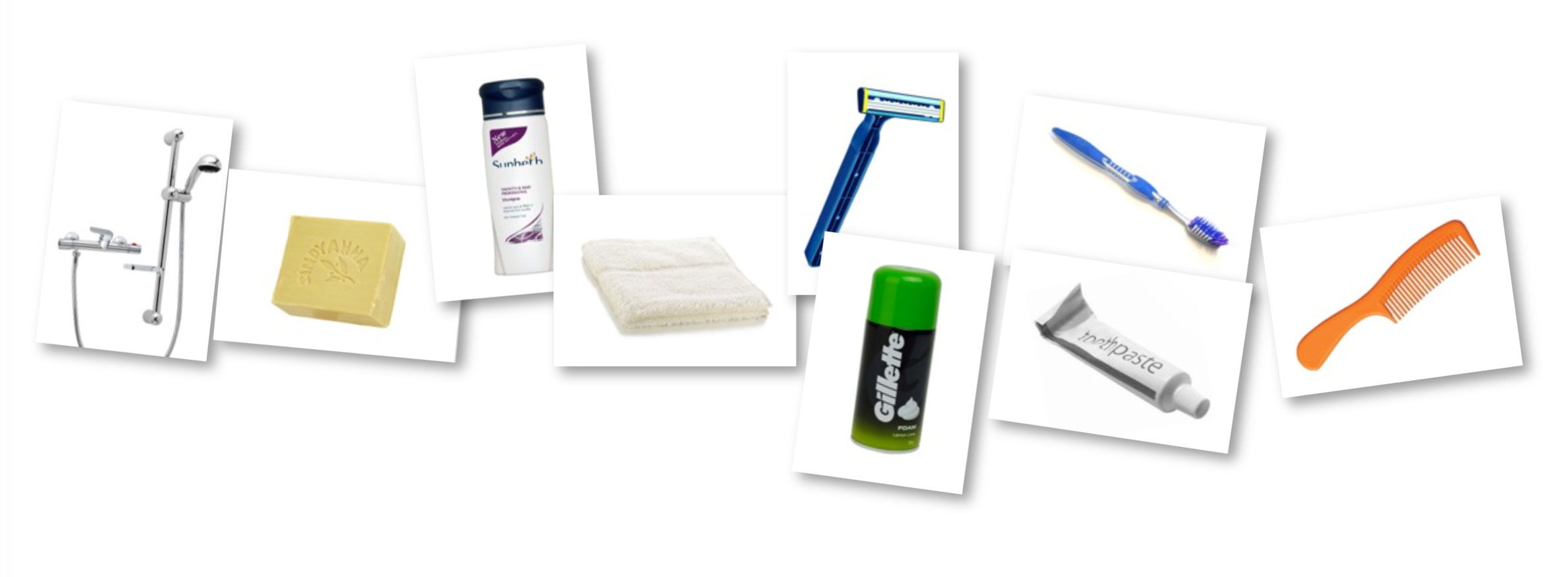
This game also brings value to the caregivers who can use to evaluate patients’ ability to perform ADLs. It makes it easy to monitor the progress of the patient. Playing this game the nurse can naturally pull of much conversation with a patient, which also will help develop verbal skills of a patient.
A prototype of the ADLs game was created and tested with a nurse and a few patients. We got a positive feedback from nurses in Malmi outpatient clinic as both the patients and nurses considered playing the game to be fun and useful. Now other teams in the clinic are demanding them.
We believe ADLs game can easily be an open source, public domain project by incorporating some recent technology and well-‐considered logistics. If the card game shall be used in a more rugged working environment just like in the home care team in Malmi outpatient clinic, we believe it shall be printed on a proper paper and cut nicely so that caregivers can use it more easily. The game has a good potential to be developed into a board game or more complex set tasks for rehabilitants. As Professor Keinonen mentioned the ADLs game can be developed further throught a masters thesis by one of the Aalto students.
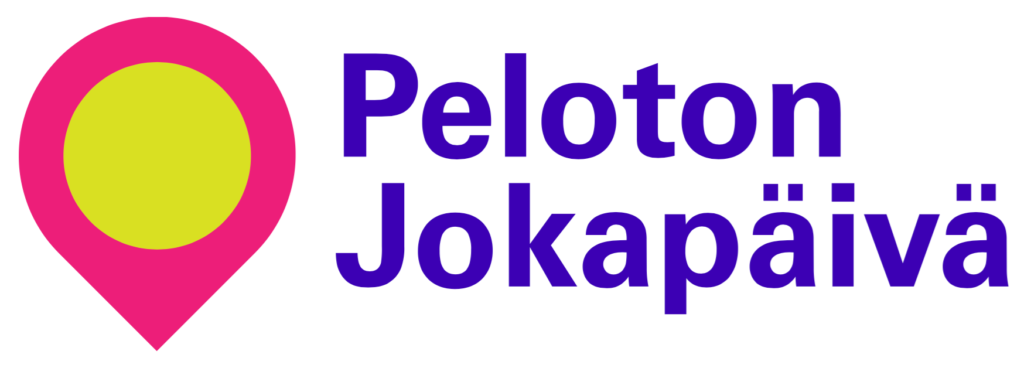
Peloton Jokapäivä, Fearless Everyday in Finnish, is a branded union for 3rd sector organizations as for psychiatric rehabilitation that is similar to commercial food chain where one easily knows what to expect. The difference is that every 3rd sector organization participating in the brand still keeps activities of their own strength. As to the brand’s promise a standard is to be met such as an open kitchen, a volunteer worker who helps rehabilitants cook for themselves, and two or more professional care givers from different sector.
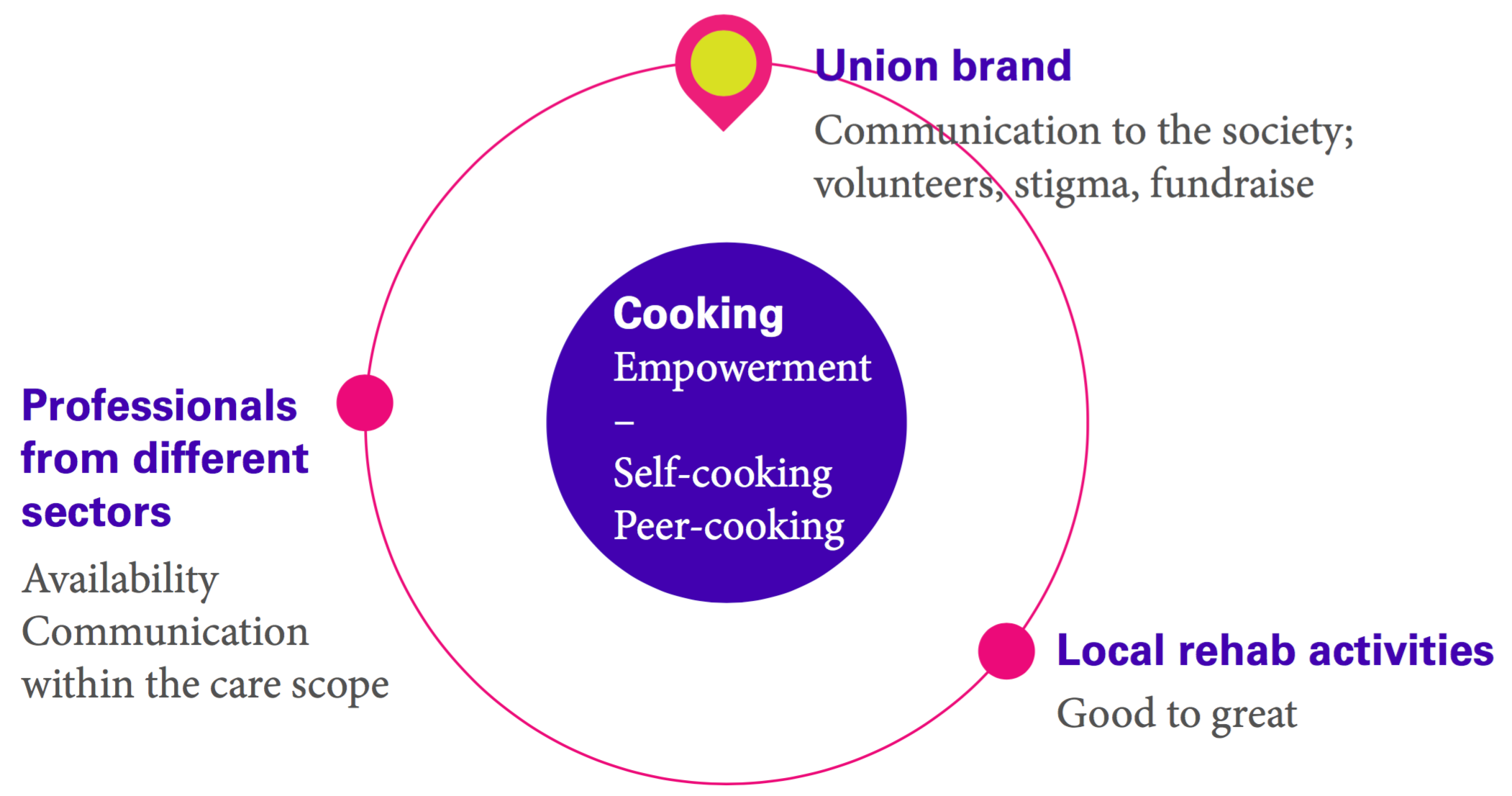
Peloton Jokapäivä has cooking at the core. Cooking works “carrot and stick” for the psychiatric rehabilitants as the vast majority of them are financially marginalized and live with unhealthy food everyday. Peloton Jokapäivä offers open kitchen area where rehabilitants can come, pay little money, and cook for them selves with helps of volunteers and the NGO staff. Volunteers will eventually be change agents in the society reducing stigma and raising private fund for the brand.
Peloton Jokapäivä is a nation-wide 3rd sector organizations brand that can be adopted by any local NGOs offering rehab activities. The member organization can take part in the brand while keeping the activities of their strength. The open kitchen is right adjacent to the other activity area, so that rehabilitation activities are more easily exposed to all the participants.
There will be also care professionals from different sectors being casually available for patients and also for each other, which is will eventually enhance the care practice in general by having caregivers in different area learn from each other.
The place
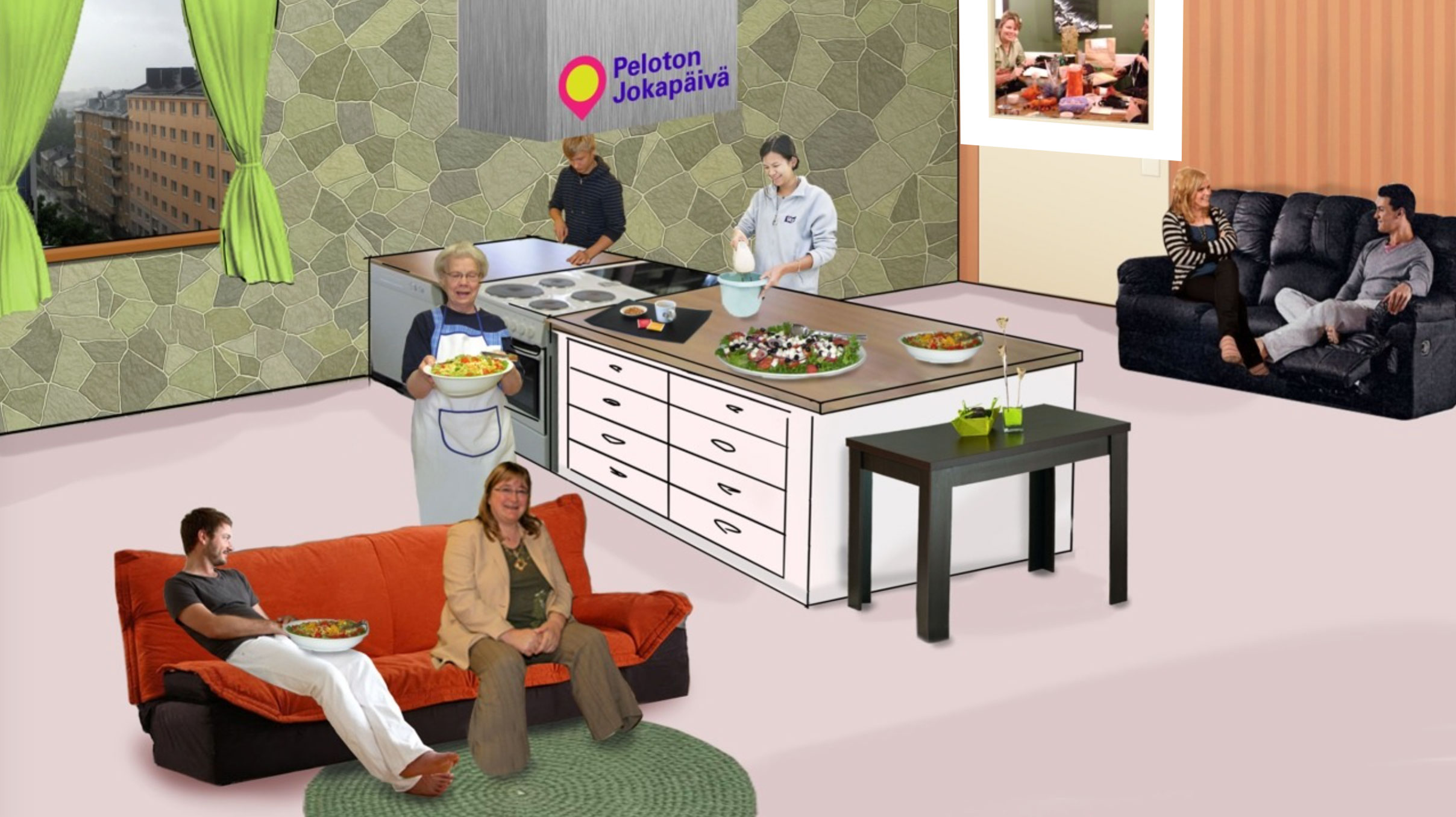
Above is the visualization of a typical Peloton Jokapäivä premises. One can see the staff of the local 3rd sector organization on the red sofa talking to a rehabilitant. Behind, a friend of the rehabilitant is coming with a bowl of salad, which she just made with the volunteer in white. The volunteer worker is about to bake buns and a rehabilitant with the rehabilitant in black. There are a social worker from the municipality and a doctor from an in patient clinic talking to each other as all the rehabilitants are having a good time. Finally, there is a knitting activity is going on behind the door which anyone can take part in.
Tools for information
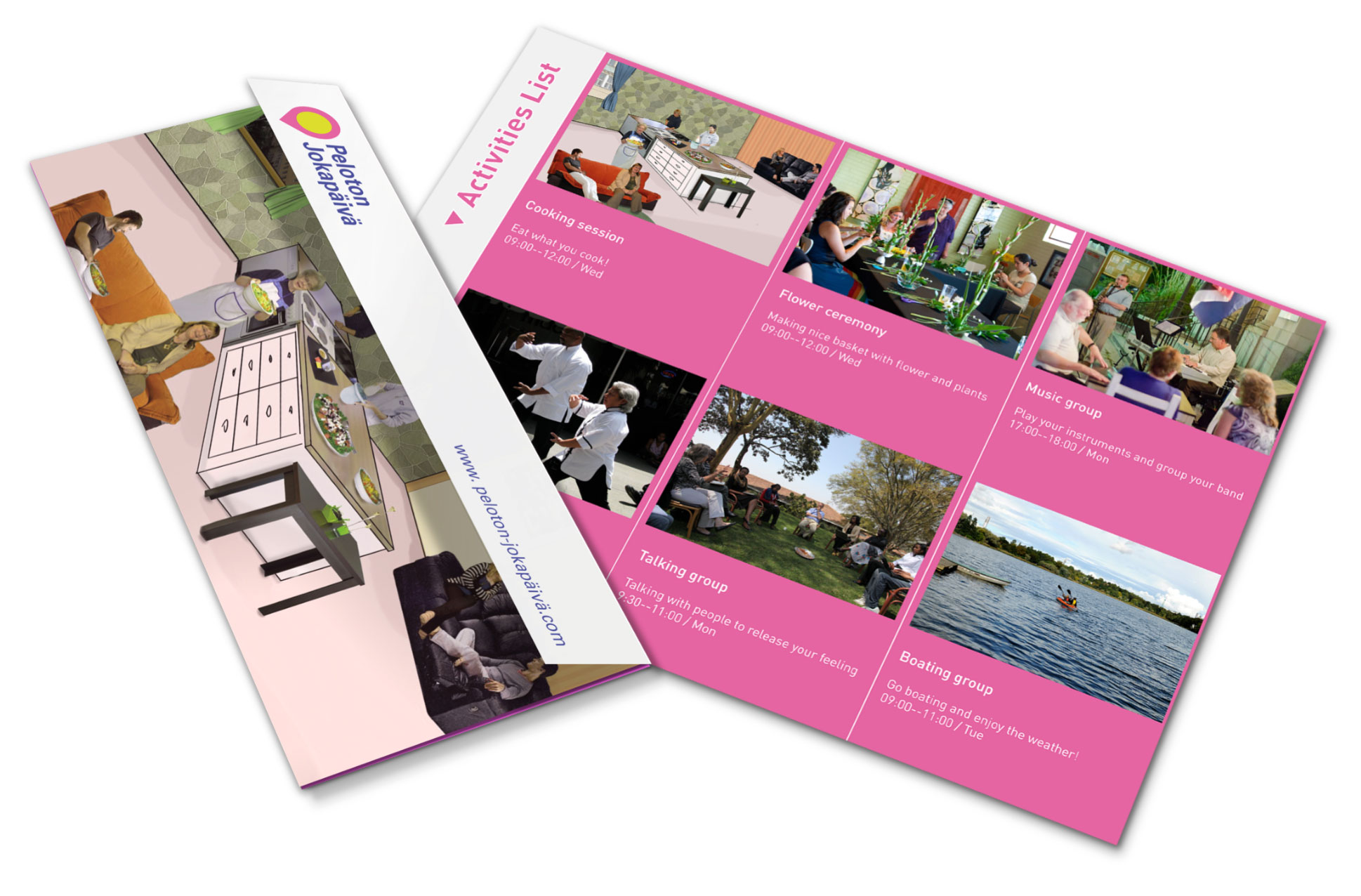
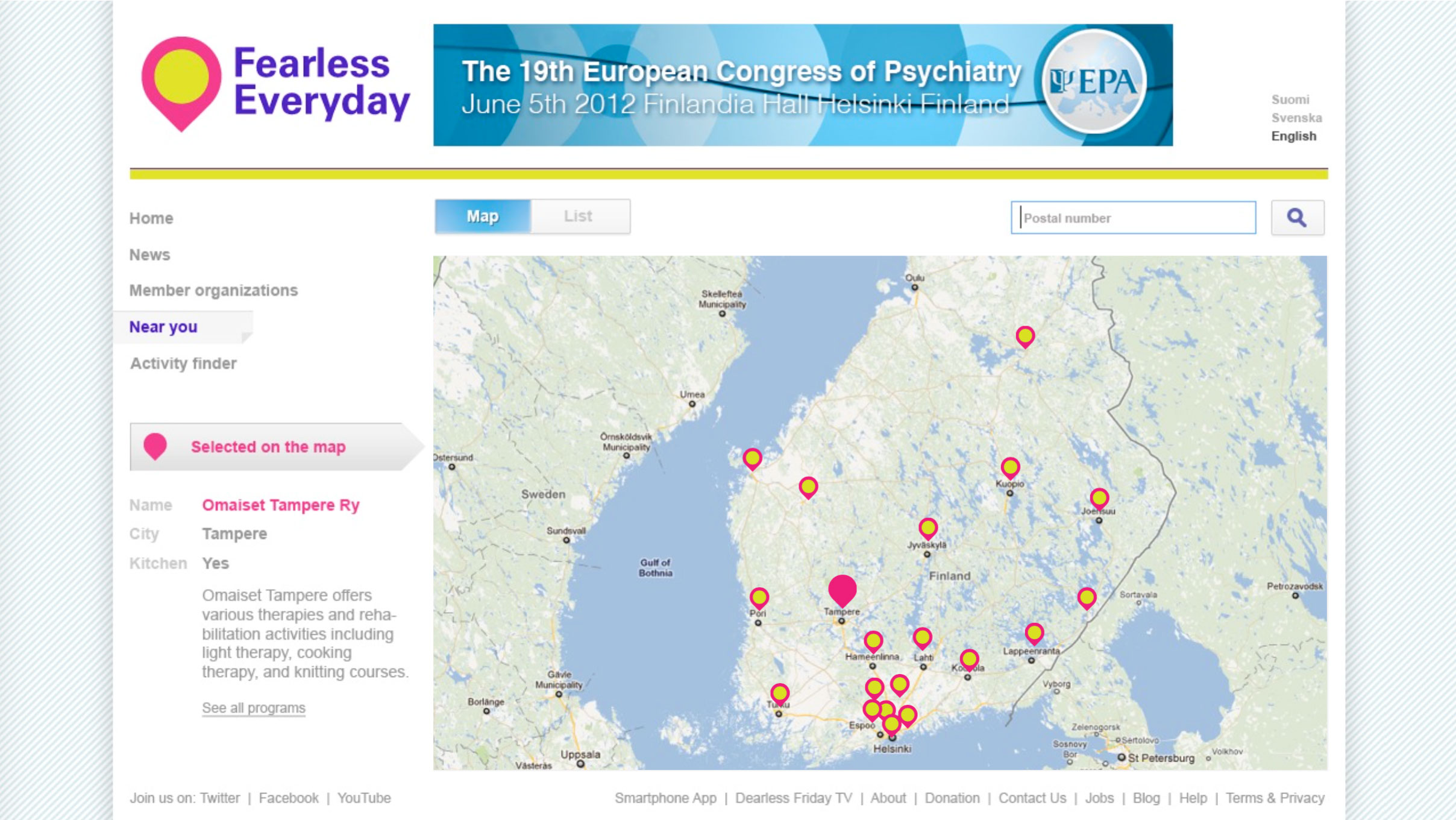
An informative website will be designed for all the stakeholders. Most importantly, any rehabilitant can type in his/her postal number and will be able to find the nearest Peloton Jokapäivä premises. When clicked, the point on the map shows also the other rehabilitation activities by the local organization. Leaflets for local information will also be published every once in a while to help rehabilitants take part in other activities at a little further locations.
Location

As the income of rehabilitants is marginalized the accessibility with the public transportation is critical. All Peloton Jokapäivä branded 3rd sector organizations shall be easily approachable by public transportation, and Peloton Jokapäivä will not only helps the organization have the open kitchen, but also will help their relocation if necessary.
Future projection
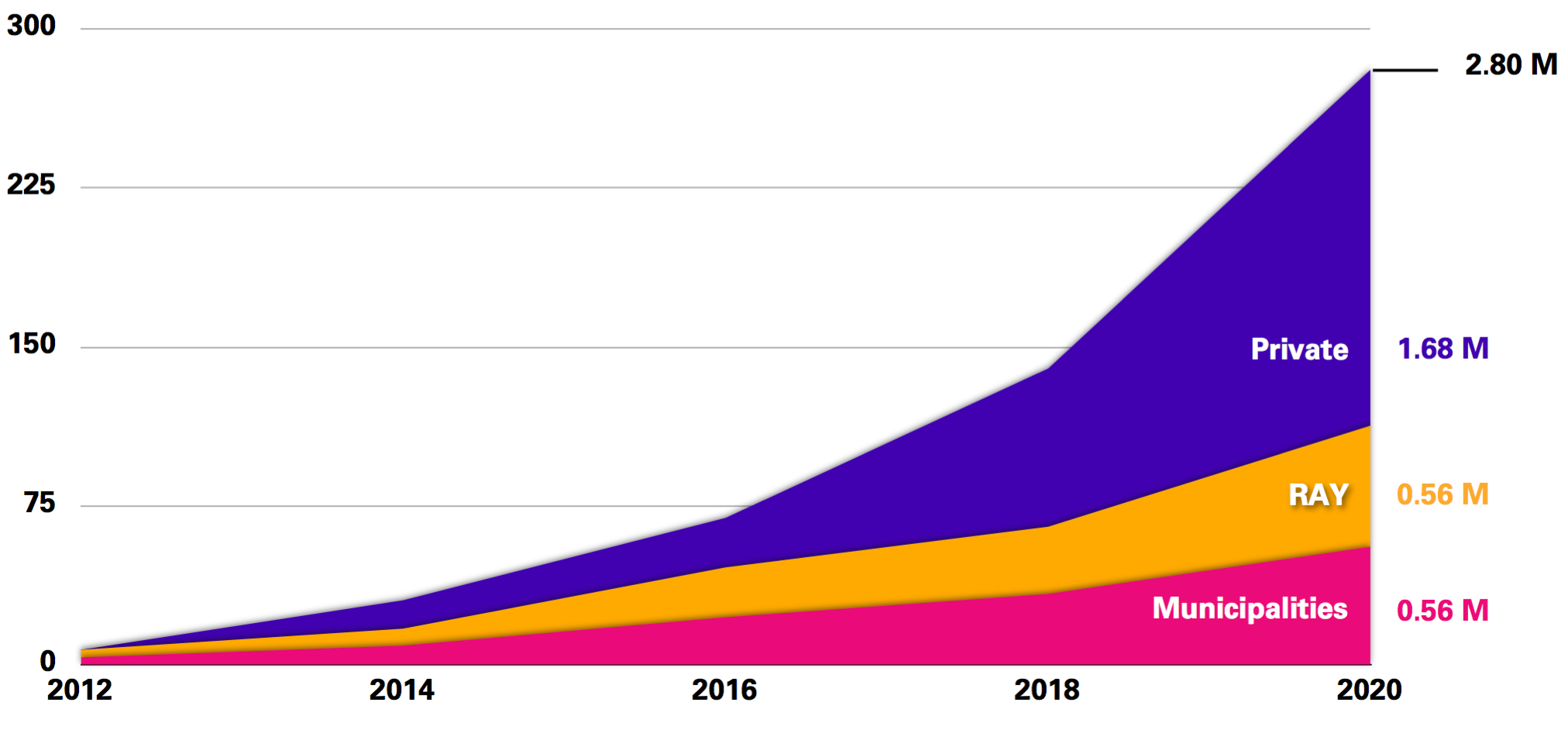
Peloton Jokapäivä is to be built from grass‐root level and up. In the beginning, two third‐sector organizations with already existing kitchens are involved. Two full‐time workers would be needed to get the organization to operate. Volunteers play an important role in Peloton Jokapäivä, especially in the day activity premises. We want to make the participation in voluntary work as easy and fun as possible. Initially twenty volunteers are required if one would spare a couple of hours a month.
In ten years we hope Peloton Jokapäivä will have become a recognized brand nation-wide, having roughly 70 premises in over twenty cities, employing some 50 paid staff and recruiting over 2,000 volunteers.
Some 70,000 euros was estimated to be required from the beginning to help participating 3rd sector organizations get proper kitchen, and as Peloton Jokapäivä expands throughout Finland, the budget in 2020 shall be some 2.8 million. The fund comes entirely from RAY and municipality in the beginning. Our goal is, however, to get the majority of fund from private donors. Hopefully by 2020 60% of the funds come from private sector, 20% from RAY, and 20% from the municipalities.
We believe the scenario is probable as many largely branded organizations such as the Red Cross and The Club House succeed to receive help from private sector not only in monetary forms but also in form of products and services.
The future of the Peloton Jokapäivä, however, is in question when the ownership of the problem – the missing middle – is taken into consideration. Mikko Huttunen, one of the rehabilitants working hard for Klubitalo Sörnäinen, has become interested and asked the team to send the presentation material to him.
 Collaboration between Aalto University, World Design Capital Foundation, City of Helsinki, and teamwork with Ida‐Maria Kivelä(FI), Ilmari Mansikkamäki(FI), Lin Pei(CN)
Collaboration between Aalto University, World Design Capital Foundation, City of Helsinki, and teamwork with Ida‐Maria Kivelä(FI), Ilmari Mansikkamäki(FI), Lin Pei(CN)
프로젝트를 위한 리서치 단계에서 가장 크게 배운 점은 대부분의 환자들에게 정신질환은 과거가 아니라는 점. 많은 경우 여러가지 제약으로 인해 언제든 병을 다시 키울 수 있고 마치 성인병처럼 합병증 역시 그들이 사회에 건강하게 적응해 정신병을 뒤로하고 건강하게 살아가는데 어려움을 주기 때문에 실제로 많은 수의 환자들이 같은 질환이나 유사한 질환으로 인해 다시 병원을 찾을 수 있다. 따라서 병원 만큼이나 중요한 것이 바로 환자의 독립을 도울 수 있는 재활 치료와 활동.
네 명으로 이루어진 팀은 헬싱키 의료 센터에 속한 오로라 입원진료소와 말미 외래진료소를 비롯, 헬싱키 내에서 정신과 환자에게 재활을 포함한 다양한 서비스를 제공하는 비영리단체들과 협력해 프로젝트를 진행했으며 결과는 규모, 투자금, 현실화까지 걸리는 시간까지 모든 측면에서 아주 다른 두개의 해결안이었다.
ADLS 게임
일상생활활동능력(Activities of Daily Living, ADLs)은 육체적, 정신적 질병을 막론하고 널리 사용되는 의료용어로, 질병을 앓았던 혹은 앓고 있는 환자가 독립적으로 생활을 영위하는데 있어 요구되는 기본적인 일상활동을 해낼 수 있는지 여부를 말한다. 정신분열증 환자를 비롯한 많은 정신과 환자들이 양치나 몸을 씻는 등의 ADLs를 수행하는데 어려움을 느낄 수 있고, 칫솔이 무엇인지 설명할 순 있지만 그것을 어떻게 사용하는지를 기억하지 못하는 경우도 있을 수 있다. 혹은 위에 언급된 ADL들은 수행할 수 있지만 은행업무를 보거나 장을 보는 등의 조금 더 복잡한 ADLs에 어려움을 느끼는 경우도 있다. 문제는 환자들이 본인이 어떤 ADLs를 수행하지 못하는지 알기 어렵다는 것.

ADLs 게임은 의료진이 이런 환자의 상태를 쉽게 진단하고 각 환자가 필요한 ADL을 배울 수 있도록 설계되었다. 간호사의 의사 등의 의료진이 다양한 ADLs의 각 단계를 설명하는 사진으로 구성되어 있는 이 카드를 섞어 환자 앞에 펼쳐 놓고 1. 특정한 ADL을 수행하는데 필요한 과정을 선택해 2. 순서에 맞에 열거하고 3. 각 과정을 설명해 달라고 부탁함으로써 환자의 상태를 좀 더 명확하게 이해할 수 있게 되고, 샤워 등의 의료진이 함께 해주기 어려운 ADLs를 환자가 학습하도록 도울 수 있다. 상태가 호전되어 기본적인 일상생활활동능력(Basic ADLs, BADLs)을 확보한 환자들의 경우 혼자 대중교통을 이용해 은행업무를 보는 등의 조금 더 어려운 일상생활활동능력(Institutional ADLs, IADLs)을 향상시킬 수 있으며, 환자가 의료진이나 가족 없이도 병원과 집 밖에서 혼자 생활을 영위해 나가는데 느낄 어려움을 덜어주고 자신감을 회복하는데 도움을 줄 수 있다.

ADLs 게임은 환자의 상태를 진단하고, 환자의 ADLs를 키워주는 것 뿐만 아니라 의료진과 환자의 대화를 자연스럽게 촉진하고 환자의 언어능력을 향상하는데 도움을 줄 수 있다. ADLs 게임의 프로토타입은 말미 외래진료소의 의료진과 환자들에 의해 사용되고 있으며, 게임을 아직 전달받지 못한 의료진들 역시 이 게임을 사용하고 싶어한다고 연락을 하는 등 긍정적인 피드백을 받았다.

Peloton Jokapäivä (뻴로똔 요까빠이바)는 핀란드 내에서 정신과 환자에게 재활을 포함한 다양한 서비스를 제공하는 비영리단체들을 위한 브랜드로 낯선 환경을 두려워하는 정신과 환자들을 위해 마치 프랜차이즈 식당이라면 어디든 같은 메뉴를 볼 수 있는 것과 같이 어디서든 유사한 서비스를 제공 받을 수 있는 콘셉트이다. Peloton Jokapäivä는 핀란드어로 두려움 없는 매일을 뜻하며, 일반 프랜차이즈와 다른점이라면 각 비영리단체가 본인들이 오랜동안 제공해 온 활동을 포기하고 천편일률적인 서비스를 시행하는 것이 아니라 강점을 더욱 살리기 위해 환자들에게 매일 방문할 수 있는 환경을 제공하는 것을 목적으로 한다는 것이다. 브랜드가 공통적으로 제공하는 서비스는 열린 주방, 정신치료 재활에 돌입한 환자들을 도와 요리를 할 자원활동가, 그리고 다양한 정신진료 분야의 의료진 두명이다.

Peloton Jokapäivä는 요리를 그 핵심에 둔다. 음식은 경제적으로 어려움을 겪는 많은 정신과 환자들에게 ‘당근과 채찍’으로 작용할 수 있다. 경제적인 어려움과 정신적인 어려움이 겹친 환자들은 건강하지 못한 인스턴트 음식을 선택하게 되는 경우가 많고, 그로 인해 건강을 해치면 더욱 쉽게 정신질환을 다시 경험할 수 있다. Peloton Jokapäivä는 그들이 흔히 냉동피자 등의 음식에 지불하는 수준의 비용을 받고 자원활동가나 비영리단체의 일원과 함께 장을 보고 요리를 할 수 있는 환경을 제공함으로써 환자들에게는 건강한 음식을 제공하고, 요리를 배울 수 있게 도우며 해당 비영리단체가 제공하는 재활운동에 노출될 수 있게 하는 한편, 자원활동가들에게는 정신질환을 앓는 사회의 일원의 삶을 조금 더 깊이 이해하고 그들과 함께 살아가는 방법을 깨우칠 수 있는 기회를 제공한다. 또한 하루 1시간 정도 자리를 지킬 의료 전문가들은 다소 딱딱한 병원환경이 아닌 주방에서 환자들에게 상담의 기회를 제공하고 다양한 분야의 전문가들과 네트워킹을 할 수 있는 기회를 가지게 된다. Peloton Jokapäivä를 통해 각 비영리단체는 높지 않는 비용으로 높은 수준의 재활활동을 제공함은 물론 보다 높은 정기적인 환자들의 방문을 통해 기존에 제공하던 프로그램을 활성화할 수 있다.
공간

위 그림은 Peloton Jokapäivä의 주방을 시각화 한 예시로 비영리단체 직원이 붉은 색 소파에 앉아 환자와 대화를 나누고 있다. 그 뒤에는 환자의 친구가 흰 옷을 입은 주방의 자원활동가와 함께 만든 샐러드를 들고 소파쪽으로 걸어오고 있다. 자원활동가는 검은 옷을 입은 환자와 함께 빵을 구울 준비를 하고 있으며, 다른 한쪽에는 공무원과 의사가 대화를 나누고 있다. 주방의 한켠에 있는 문 뒤에서는 뜨개질 수업이 진행되고 있다.
소통


웹사이트에서 우편번호나 주소를 입력해 환자 본인에게 가장 가까운 Peloton Jokapäivä를 찾을 수 있으며, 가까운 장소를 클릭하면 Peloton Jokapäivä 외에 제공하는 수업이나 서비스를 확인할 수 있다. 방문한 비영리 단체에서는 정기적으로 발행하는 지역 리플렛을 나누어주며, 환자들은 그것을 통해 지역의 다른 활동에 대해서도 접할 수 있게 된다.
위치

대체적으로 수입이 낮은 정신과 환자들에게 대중교통으로 닿을 수 있느냐 하는 점은 매우 중요하게 작용한다. 따라서 Peloton Jokapäivä는 낮은 가격에 열린주방을 설치하거나 웹사이트나 리플렛을 통해 소통을 돕는 것에 그치지 않고 Peloton Jokapäivä에 가입한 비영리 단체가 환자에게 가까운 위치로 옮길 수 있도록 하는데 도움을 준다.
장기 계획

Peloton Jokapäivä는 두명 정도의 작은 정기인력과 이미 주방을 가지고 있는 두 세 비영리단체와의 협력을 통해 풀뿌리 운동의 형태로 작게 시작해 전국적인 움직임으로 성장하는 것을 목적으로 한다. 자원활동가는 Peloton Jokapäivä의 활동에 가장 중요한 역할을 하게 되는데, 20명 정도의 자원활동가가 한달에 두시간 정도씩 활동시간을 기부하는 것을 시작으로, 10년 후 70개의 Peloton Jokapäivä 서비스 포인트, 50명의 정기인력과 2,000명의 자원활동가를 목표로 한다.
프로젝트의 첫 해 핀란드 슬롯머신 협회에서 약 7만 유로의 펀딩으로 시작, 10년 후에는 약 60% 개인이나 기업의 기부를 통한 모금으로 2백 80만 유로를 목표로 한다. 이 기부는 이미 적십자나 클럽하우스가 성공적으로 하고있는 것 처럼 현금 뿐 아니라 주방기구, 컴퓨터 등의 꼭 필요한 물건으로도 받을 수 있다.
 협력기관: 알토대학교, 세계디자인수도 파운데이션, 헬싱키 시, 팀원들: Ida‐Maria Kivelä(핀란드), Ilmari Mansikkamäki(핀란드), Lin Pei(중국)
협력기관: 알토대학교, 세계디자인수도 파운데이션, 헬싱키 시, 팀원들: Ida‐Maria Kivelä(핀란드), Ilmari Mansikkamäki(핀란드), Lin Pei(중국)